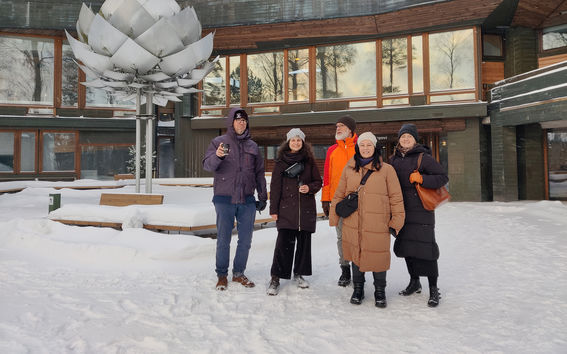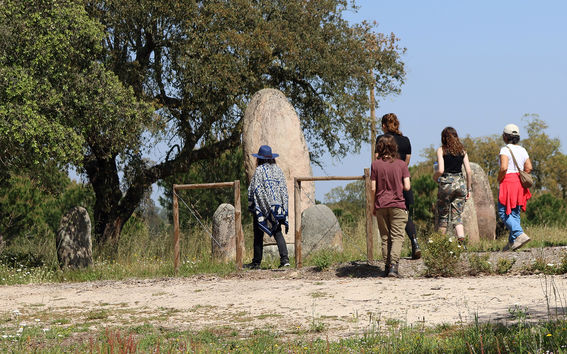Preserving intangible cultural heritage through immersive XR experiences

The Intangible Cultural Heritage, Bridging the Past, Present, and Future (INT-ACT) project, funded by the Horizon Europe program, saw its beginning in Espoo, Finland in early 2024. Ten of the consortium members, plus a few more online, gathered together on a snowy January day at Aalto University campus in Otaniemi, Espoo, to set the footsteps for the work and collaboration of renowned European academic and research institutions.
The project seeks to develop and promote means of preserving intangible cultural heritage associated with tangible heritage sites across Europe. It focuses on exploring the vital role of intangible cultural heritage, encompassing traditions, practices, narratives, and knowledge that shape our cultural identity, and foster a sense of belonging that serves as a bridge between the past, present, and future.
The INT-ACT project aims at creating immersive Extended Reality (XR) experiences for visitors at four tangible cultural heritage sites across Europe, in Portugal, Scotland, Finland, and Greece. The initiative aims to provide new perspectives for societal transformation and address contemporary societal challenges amidst global historical shifts.
‘What is important here, is that we are exploring and creating new ways of engaging both local people and visitors to our selected sites, to experience and understand the significance of these site not only as tangible cultural heritage worth preserving, but also their role as sources of our shared human experiences, narratives, history, traditions, and intangible cultural heritage. Immersive XR environments can help us preserve and more widely share these diverse elements of our intangible cultural heritage’, says Professor Masood Masoodian, scientific leader of the INT-ACT project.
Addressing societal challenges
The project will result in the development of four XR-based demonstrators, one for each of the sites. The demonstrators will offer immersive experiences of intangible heritage related to physical heritage sites in a way that brings together local narratives, while addressing specific societal challenges. In relation to the site-related augmented reality experiences, the project will forge frameworks for addressing cultural tourism, ageing societies, disappearing communities, and immigration and multiculturalism.

In April, Professor Masoodian and postdoctoral researcher Inkeri Aula of the Aalto Visual Communication Design (AVCD) research group visited several megalithic sites in Alentejo region of Portugal, where Aula, an anthropologist, conducted a narrative workshop and ethnographic interviews about experiences related to these sites with the locals.
Over the next two years similar field research will be conducted at other selected sites, including Calanais in Scotland, Koli national park in Finland, and the municipality of Kavala in Greece. Narratives based on these interviews will provide content and contribute to the visual design of the INT-ACT project demonstrators.
INT-ACT is coordinated by Aalto University, in partnership with the University of Edinburgh in the UK, the University of Évora in Portugal, ITML from Greece, and URBASOFIA from Romania. In addition, the Municipality of Kavala from Greece and the XR pioneer company ARILYN from Finland contribute with their expertise. The project also involves Staff scientist, doctor Antti Ruotoistenmäki and several others from Aalto University’s media centre Aalto Studios. The project will run for three years (2024–2026) with a budget of nearly 2.7 million Euros.
More information:
Professor Masood Masoodian, masood.masoodian@aalto.fi
Postdoctoral researcher Inkeri Aula, inkeri.aula@aalto.fi
Read more news

Join the Unite! Virtual Education Summit- Registration now open
Join us in shaping international collaboration! This online event takes place 12 March, 2026.
Apply Now: Unite! Visiting Professorships at TU Graz
TU Graz, Austria, invites experienced postdoctoral researchers to apply for two fully funded visiting professorships. The deadline for expressions of interest is 20 February 2026, and the positions will begin on 1 October 2026.






